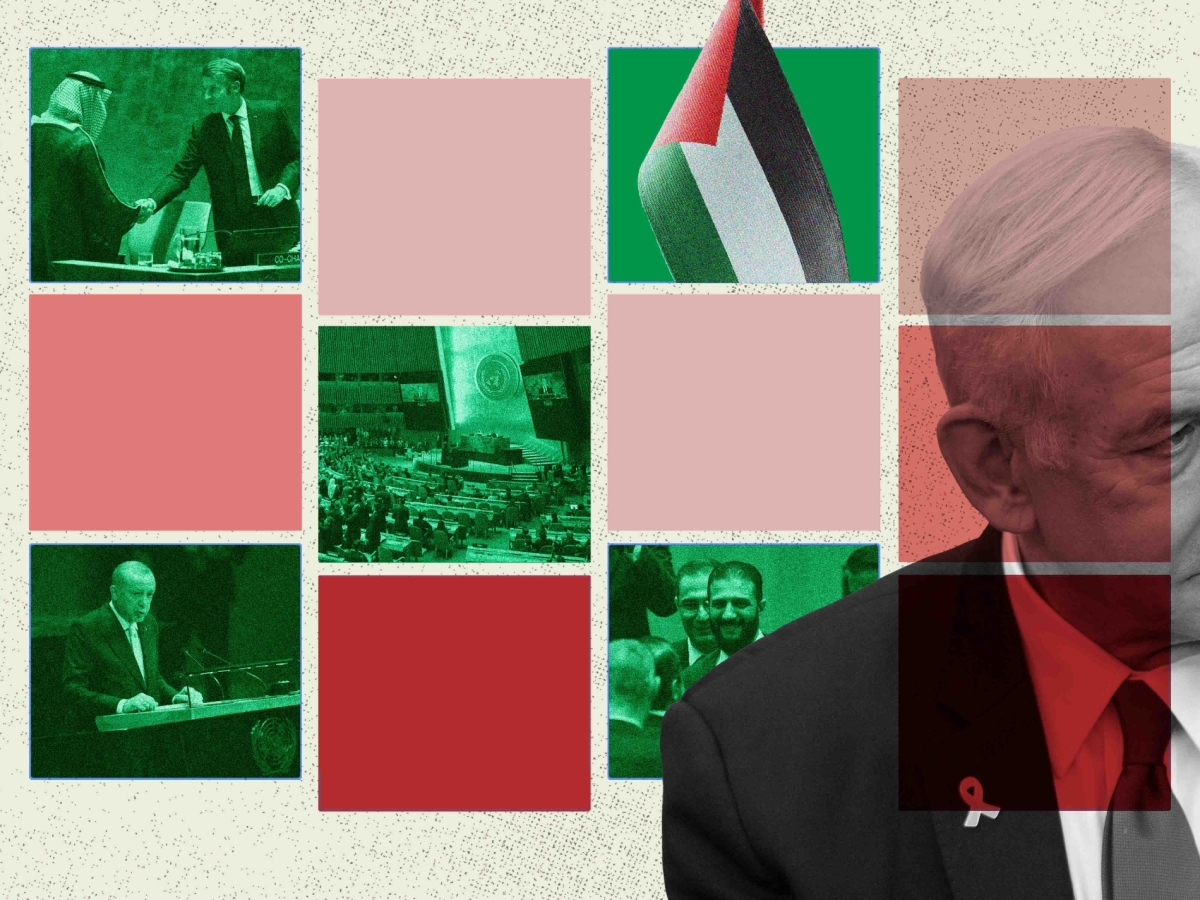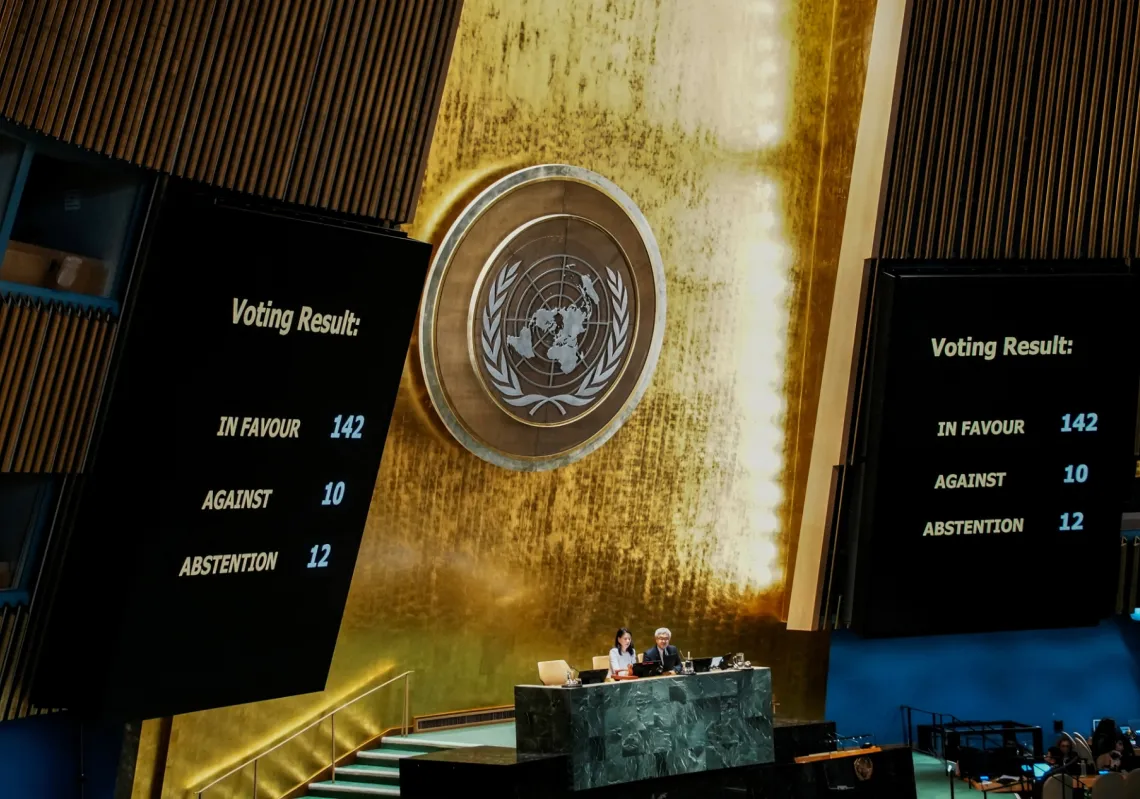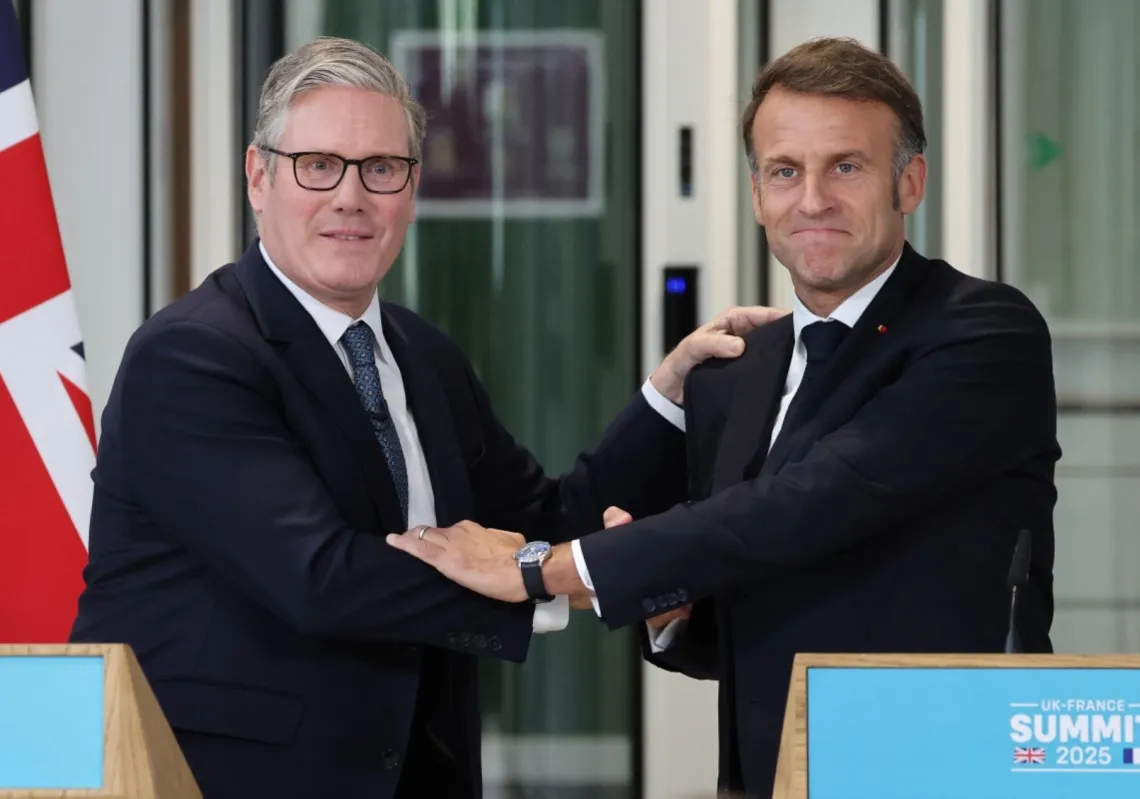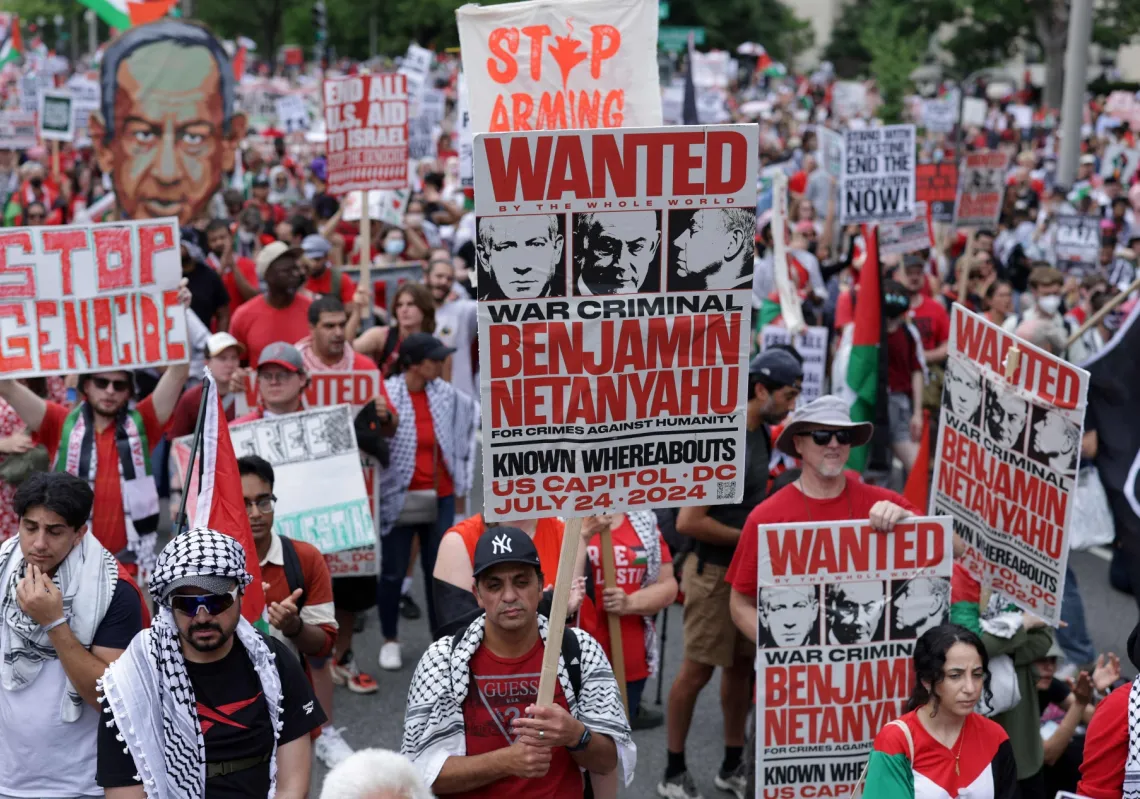This week is a landmark moment in the decades-old fight for a sovereign Palestinian state, as several of the world’s most powerful nations line up to recognise that long-held dream at the United Nations in New York, with announcements by France, the UK, Canada, and Australia (to name but a few) causing diplomatic waves.
It follows the second meeting of an international conference on the implementation of the two-state solution, held on 22 September. Initiated by France and Saudi Arabia, it was boycotted by the United States and Israel, but drew in dozens of other countries, several of whom used the week to finally recognise a State of Palestine.
This year's two-state conference—of which there seem to have been so many over the years—differed from its predecessors in that it did not merely reiterate well-worn diplomatic positions. Rather, as Israel’s war on Gaza continues, it served as a ‘now-or-never’ rallying cry for those who would like to see a Palestinian state, accelerating a wave of international recognition that is fundamentally altering the landscape of the Israeli-Palestinian conflict.
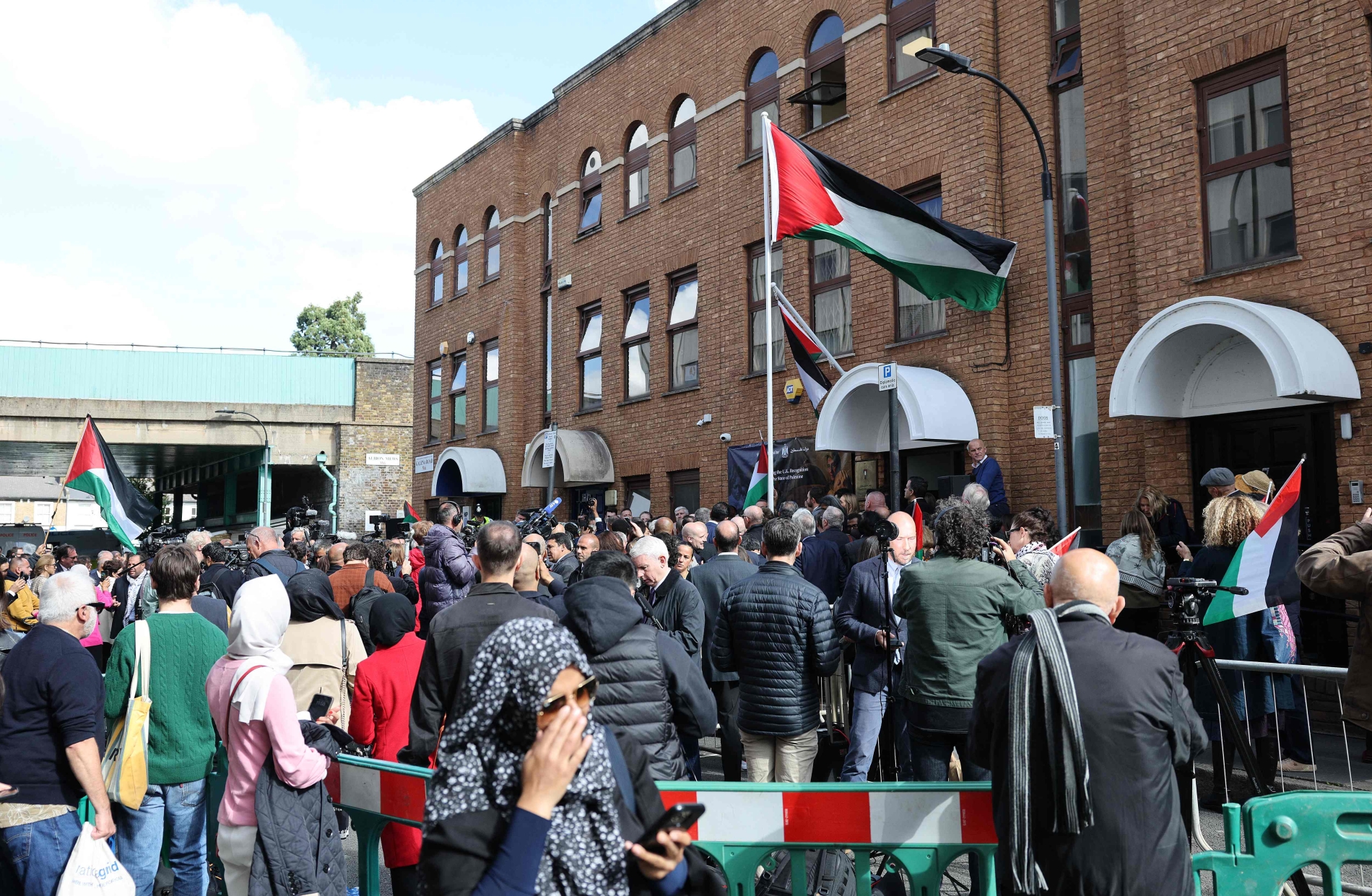
Building momentum
With each new nation that recognises the State of Palestine at the UN, the foundation underpinning the status quo (an Israeli state occupying Palestinian territory) grows less stable. At the last count, 156 states now back a Palestinian state, nearing the number of states (164) that recognise the State of Israel. The symbolism and strategic implications of this are huge, not least because this is now approaching an undeniable global consensus, the momentum for which is not being driven by fringe actors but by pivotal, historically significant powers.
Recognition by both France and the UK is important not just because they are permanent members of the UN Security Council and of the G7, but because they are the historic architects of the modern Middle East. The Sykes-Picot Agreement of 1916 was a treaty between the British and the French dividing the Arab territories of the collapsing Ottoman Empire. Likewise, it was British Foreign Secretary Lord Balfour who, in 1917, promised Lord Rothschild that Zionists would have a ‘Jewish homeland’ in Palestine.
For the UK and France to formally recognise Palestine in 2025 is an act of profound historical correction and represents the first concrete step towards fulfilling the original intent of UN General Assembly Resolution 181 (1947), which called for the partition of Palestine into Jewish and Arab states. It also means that four of the UN Security Council’s five permanent members now recognise it, leaving the United States isolated. How long will Washington resist the overwhelming weight of international opinion?
American public opinion has long been dominated by a staunchly pro-Israel narrative, but this is changing rapidly, as US audiences see the consequences of Israel’s conduct in Gaza. In the most recent polls, support for Israel is rapidly dropping—particularly with younger people. Likewise, there is a growing sympathy for the Palestinians and their quest for justice and self-determination.
Read more: Americans are tiring of Israel. Will US policy follow?
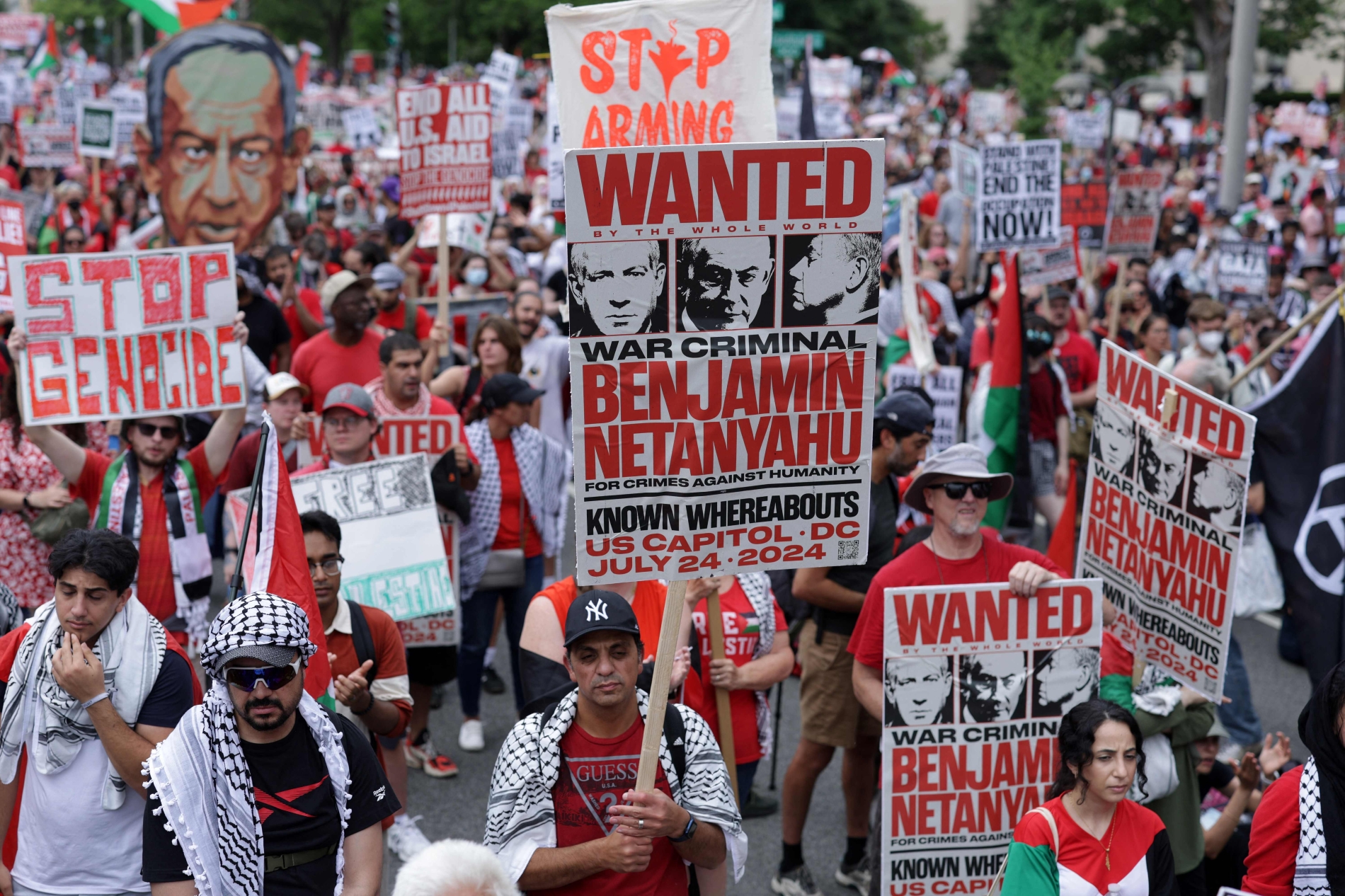
The horrific effects of Israel's war in Gaza have been a catalyst. While Israel has enjoyed bipartisan support in the corridors of power in Washington for decades, there are even signs that this may be changing, after 15 US Senators publicly called for a halt in American arms transfers to Israel, citing its continued military assault. While the signatories are still in a minority, the very idea that 15 Senators would publicly call for an arms embargo would have been unthinkable just two years ago.
Continued support for Israel's war in Gaza without Tel Aviv presenting a credible political horizon for the Palestinians is increasingly becoming a liability for US politicians, who find their pro-Israel positions ever more at odds with American public sentiment. This has given the international community encouragement that, at last, the tide may be turning.
Read more: Turning tides? Israel's allies are finally criticising its war on Gaza
Structured framework
Beyond recognition, the conference in New York yielded substantive proposals for action, albeit without a definitive timeline. French President Emmanuel Macron outlined a three-stage programme of action, offering a structured framework that moves beyond vague aspirations.
The first phase focuses on immediate de-escalation and trust-building. Its core demands include a halt to Israeli settlement expansion in the West Bank—a move deemed essential by the European Union to preserve the possibility of a contiguous state, while the Palestinian Authority (PA) must combat incitement and violence. To help it do so, Macron pledged more European financial and political support to strengthen PA institutions and establish the governance capacity needed for statehood. This stage also involves engaging regional powers, including those who normalised relations with Israel under the 2020 Abraham Accords, to leverage their influence for peace.


